LG vs ASUS Laptops: Comparing Performance & Innovation

When you compare LG vs ASUS laptops, you’re looking at two very different but very strong philosophies in laptop design. LG leans ultra-light, polished, productivity-first; ASUS balances that with gaming pedigree, performance razor-edges, and tech innovation. In 2025 each has raised the bar. This article digs into the specs, features, display tech, innovation, and what your priorities should be if you’re choosing between LG and ASUS.
What Recent Reviews Tell Us
- The LG Gram 17 is praised for combining large screen real estate with very light weight; however, reviews note noise and heat become issues under load.
- In comparing LG Gram Pro 16 vs ASUS Zenbook 14 OLED, reviewers found LG delivered stronger battery life, better sustained performance under CPU load, while ASUS offered sharper display tech, better webcam, and more cutting-edge OLED visuals.
So, in many comparisons, LG wins when it comes to portability, battery life, and productivity; ASUS tends to win when it’s about gaming strength, display refresh, flashy features, and raw compute.
Head-to-Head: Key Strengths & Weaknesses
Here are how LG vs ASUS laptops stack up across critical dimensions:
|
Dimension |
LG Strengths |
ASUS Strengths |
|
Portability & Design |
Ultra-light models (Gram/Gram Pro series) with large screens, minimal weight. Great chassis design focused on portability. |
Strong build in premium lines (ZenBook, ROG Slim); variety in designs (gaming/creator/hybrid). Thicker but more robust cooling in performance models. |
|
Battery Life |
Exceptional battery life in everyday productivity tasks; LG Gram Pro 16 gets long endurance in video & productivity. |
Good battery in lighter models; gaming models drop battery life significantly under load. |
|
Display & Visuals |
High-quality IPS/QHD+ displays, excellent colour accuracy in LG Gram; generally bright panels. |
OLED including high refresh-rate OLEDs, strong gaming-friendly visuals; premium display technologies in creator-grade ASUS laptops. |
|
Performance & Innovation |
Strong CPU performance for productivity; latest LG models include AI tools, new chips, newer integrated or discrete GPUs in some models. |
More headroom for gaming: high-end GPUs, higher thermal-design power in ASUS’s ROG & TUF lines; frequent innovations (dual screens, high refresh, new gaming-features) |
|
Cooling & Sustained Load |
LG sometimes compromises. Lighter chassis means less margin in cooling under heavy load; heat / noise can become issues. |
ASUS’s gaming lines tend to handle sustained load better, though at cost of thickness, fan noise, and sometimes weight. |
|
Price & Value |
Great value for professionals wanting portability & battery; LG Pro / Gram often match or beat competitor price in their niche. |
ASUS gives more options for performance per dollar in gaming hardware; premium ASUS machines cost more but often bring richer feature sets. |
Which Should You Choose Based on Your Priorities
If you’re considering LG vs ASUS laptops, your decision should map to what matters to you. Here’s guidance:
- Priority: Ultra-portability + battery life + travel → Go LG. Gram and Gram Pro lineups deliver among the lightest laptops with large screens.
- Priority: Gaming, creative power, high-refresh displays → Go ASUS. ROG, Zephyrus, TUF offer stronger GPU, better displays, more aggressive cooling.
- Priority: Business/desk work/content creation → LG shines, particularly in productivity, calm performance, less bulk. ASUS is good too in Creator/ZenBook lines, but you’ll pay for premium display & GPU.
- Priority: Innovation & feature richness → ASUS tends to lead: OLED, high refresh rates, gaming-centric extras, dual screens in some models. LG is catching up especially in 2025 with AI features but remains more conservative in certain design trade-offs.
How to Buy an ASUS or LG Laptop
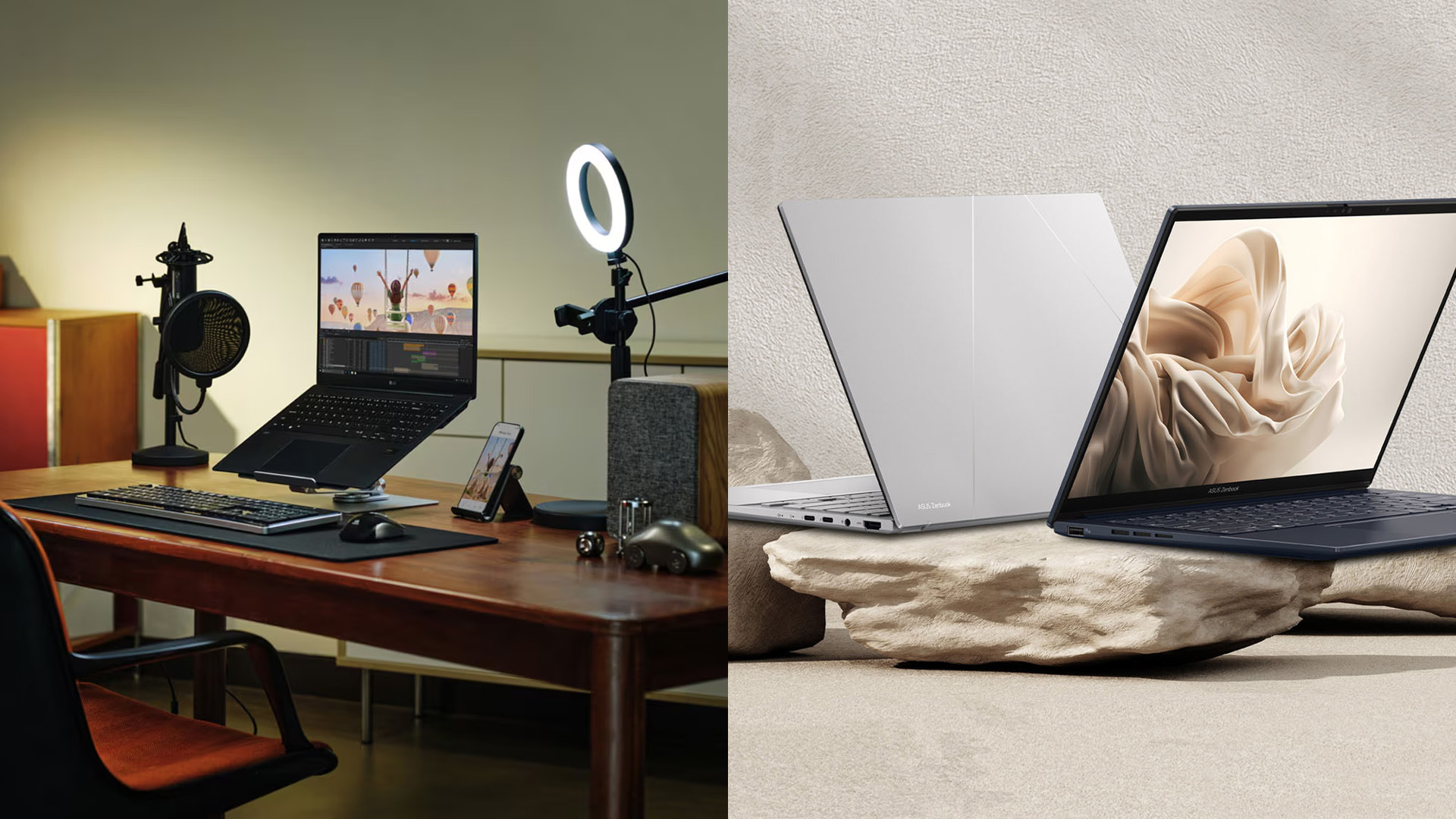
Buying a new laptop is about matching the right device to your lifestyle and budget. Here are some practical steps to follow when shopping for your next ASUS or LG laptop:
Identify Your Priorities
- Do you need ultra-light portability and all-day battery life? LG Gram series is ideal.
- Do you want high performance for gaming or creative work? ASUS ROG or ZenBook OLED models are better suited.
Set Your Budget
- LG laptops usually start around the mid-range and go up for premium productivity machines.
- ASUS has a wider spectrum, from affordable VivoBooks to high-end gaming rigs.
Check the Specifications Carefully
- Look at processor generation (Intel Core Ultra or AMD Ryzen 7000/8000/9000 series).
- Consider RAM (at least 16GB for gaming or content creation) and SSD storage.
- For gaming or design, check GPU options (NVIDIA RTX recommended).
Decide on Display Type
- If display quality and color accuracy matter most, ASUS OLED models are stunning.
- If you want a big screen in a lightweight design, LG’s 16- or 17-inch Gram laptops are excellent.
Shop with Confidence at Laptop Outlet
- Browse our curated range of both ASUS laptops and LG laptops, filter by budget, screen size, or performance needs.
- Take advantage of exclusive offers, finance options, and student discounts to make your purchase easier.
Pro Tip: Always check Laptop Outlet’s promotions and bundle deals, you may get accessories or extended warranties included, adding even more value to your purchase.

Summary
Between LG vs ASUS laptops, there is no single winner. It comes down to what you value more: efficiency & portability (LG), or performance & visual/feature edge (ASUS). If your daily use involves being on the go, working long hours, needing a large screen without the weight, LG is the safer bet. If you want to push demanding games, creative workloads, or want blazing visuals, ASUS takes the lead.

FAQs
Are LG laptops good for gaming compared to ASUS?
LG laptops (especially Gram line) are solid for light gaming and older titles, but ASUS outperforms in gaming thanks to more powerful discrete GPUs and high refresh rate panels.
Is the battery life better on LG than ASUS?
Generally, yes for productivity and common tasks. LG’s Gram and Gram Pro models tend to last longer under typical workloads. ASUS’s gaming models lose battery fast under load.
Do ASUS laptops offer more innovative display tech than LG?
Yes. ASUS more often leads with OLED, higher refresh rate options, touch & pen features, and gamer-centric display innovations. LG’s panels are strong, especially for colour accuracy, but less likely to be top-tier OLED refresh gaming.
Is LG’s lightweight build ever a drawback compared to ASUS?
It can be. Lightweight chassis sometimes means less robust cooling, more flex / less durable feel under stress. ASUS tends to build heavier in performance models to handle heat and power.
How do prices compare when choosing LG vs ASUS?
LG tends to offer better value in productivity-categories (ultrawide, Gram, Pro lines). ASUS offers a wider spectrum: from mid-range to premium gaming rigs. So, price per performance tends to favour ASUS at raw spec levels; value tends to favour LG for portability plus battery.
| Read More: |
| Is Asus ZenBook Better than HP ENVY? Best Asus Laptops |
| Are asus laptops any good? |
| Best Laptops Under £500 in 2025 |
Related Articles
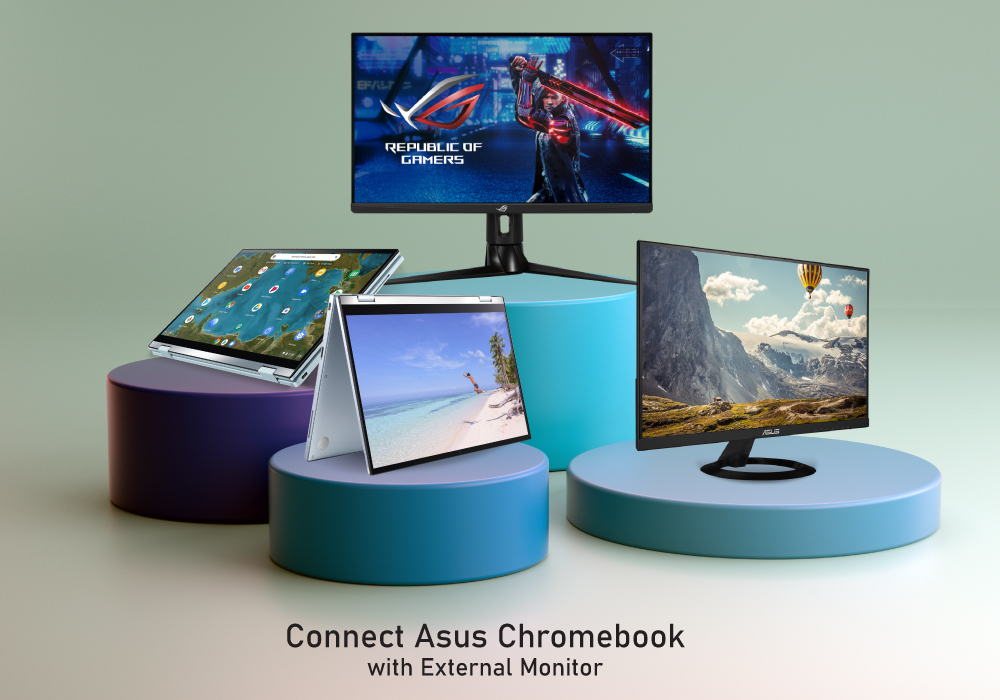
January 06, 2022

February 08, 2022
Which Asus laptop is best for gaming?
Gaming laptop is probably the best companion a gaming enthusiast can have. With the best gaming laptops, you can take your gaming sessions anywhere you want. Asus laptops have always been on top of the ladder and rightfully so. This is the reason you can find good quality Asus gaming laptop in the market with ease.
If you are thinking about buying a gaming laptop for yourself then let us help you out. We are going to be sharing with you guys our top pick for the best gaming laptop Asus has to offer. So let us just dive right in.
ASUS ROG Zephyrus M16
|
Processor |
Intel® Core™ i7 Processor |
|
Display |
16 in Screen Size, 1920 x 1200 |
|
Memory |
16 GB RAM |
|
Storage |
1 TB SSD |
|
Operating System |
Windows 10 Home |
|
Graphics |
NVIDIA GeForce RTX 3060 GPU |
Asus ROG Zephyrus M16 is definitely the best gaming laptop you can find which Asus has to offer. It gives you enough power to get things done with precision and ease. Let us find out what this

September 08, 2025
What’s the Main Difference?
Both Lenovo and ASUS are top laptop brands in the UK, but they target slightly different users. Lenovo focuses on business reliability, durability, and strong performance with its ThinkPad, Yoga, and IdeaPad ranges. ASUS leans into lightweight design, long battery life, and display innovation, especially in Zenbook, Vivobook, and ROG models.
Lenovo vs ASUS Laptops: Feature Comparison Table
|
Feature |
Lenovo |
ASUS |
|
Design & Build |
Rugged ThinkPads, understated business look |
Sleek Zenbooks, stylish Vivobooks, eye-catching ROG |
|
Battery Life |
ThinkPad T14s Gen 6: 21+ hrs tested |
Zenbook A14: up to 32 hrs; Vivobook ~16 hrs |
|
Weight & Portability |
X1 Nano: ~1.2 kg; slim Yoga ultrabooks |
Zenbook A14 under 1 kg; ROG laptops lighter than rivals |
|
Performance |
Enterprise CPUs, vPro, legendary ThinkPad keyboards |
Latest Intel/AMD chips, AI PCs, OLED options |
|
Displays |
IPS and touchscreens, good colour but OLED rarer |
OLED standard in Zenbooks, dual-screen models available |
|
Price Range (UK) |
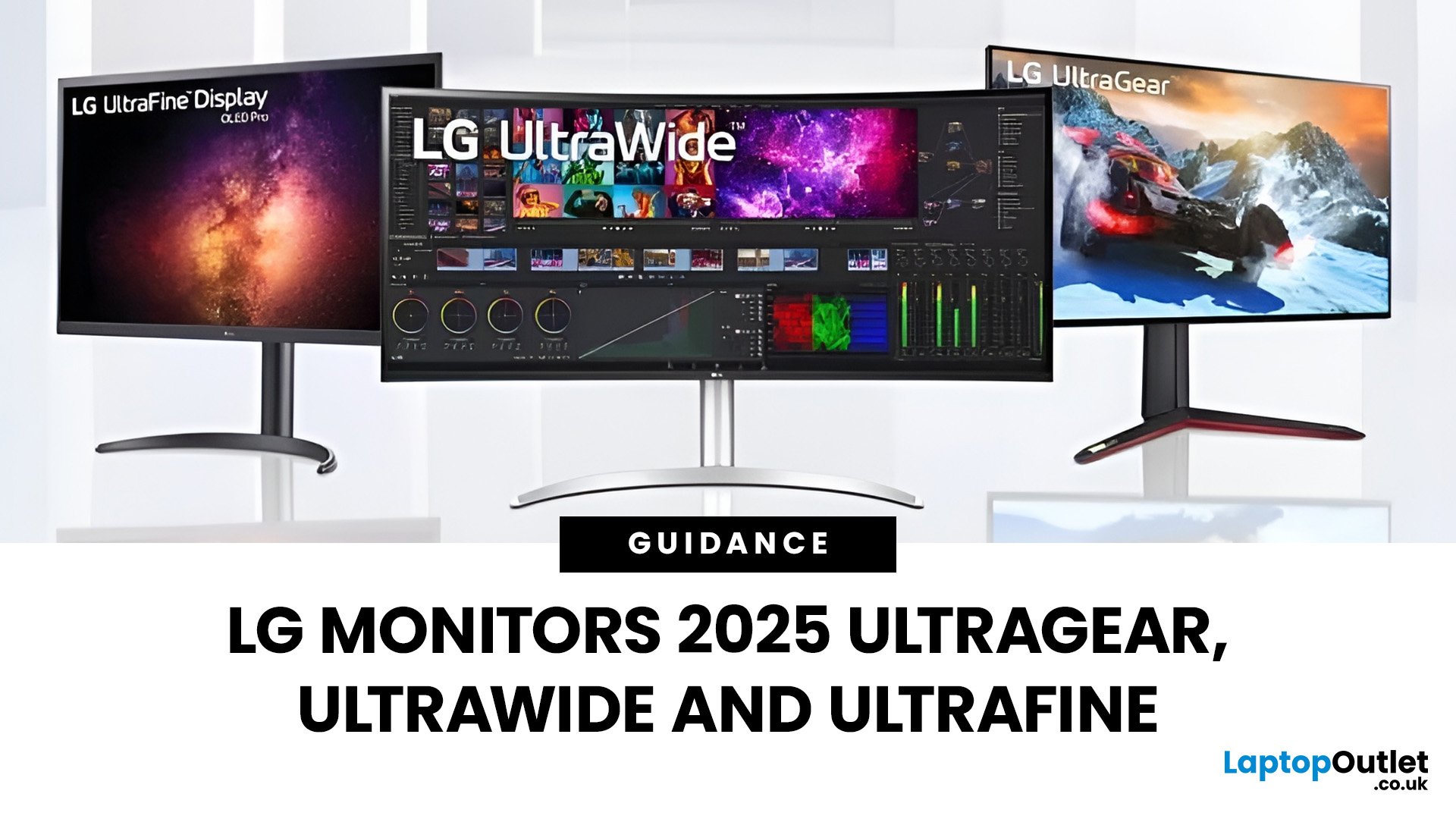
September 11, 2025
When it comes to choosing a new monitor in 2025, it’s no longer just about screen size. Today, it’s about how your monitor fits your lifestyle, whether you’re a competitive gamer, a creative professional, or someone who simply wants a more efficient workspace. That’s where LG monitors stand out.
LG has built a reputation for building top full HD monitors, and in 2025, its UltraGear, UltraWide, and UltraFine monitors cater to a diverse range of needs. UltraGear delivers speed and smoothness for gamers, UltraWide brings extra space for multitasking, and UltraFine ensures unmatched accuracy for creatives.
If you’ve been wondering which LG UltraGear and UltraWide monitors are right for you, this guide will help you find the perfect one. We’ll walk through the key strengths of each range, highlight some standout models, and answer common questions. By the end, you’ll know exactly which monitor will upgrade your setup.
The Gamer’s Choice: LG UltraGear Monitors

Imagine sitting down to play your
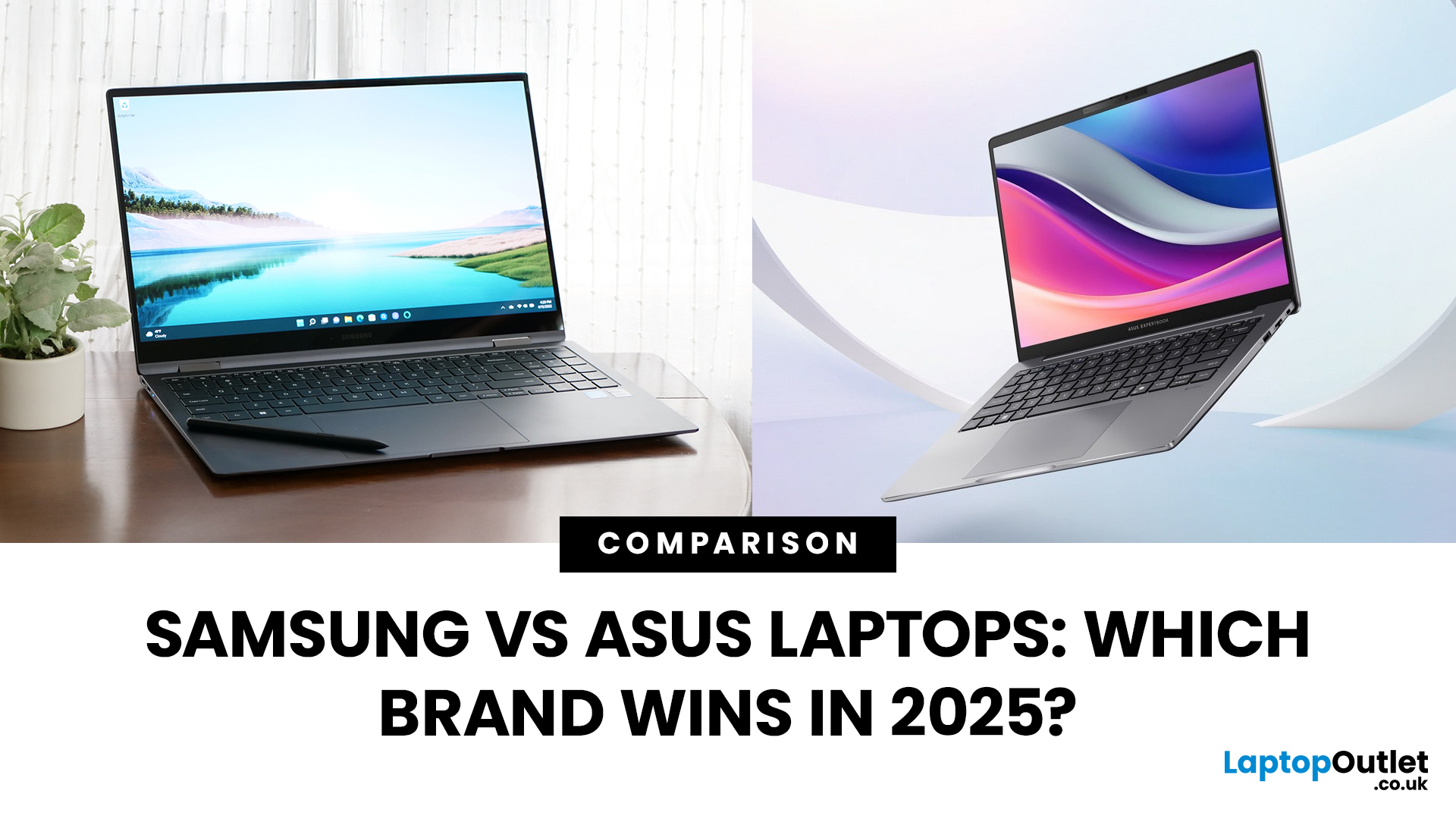
September 17, 2025
Choosing a laptop in 2025 means juggling a lot of factors: display tech, battery, build quality, performance, support. Samsung and ASUS both have strong offerings, but they approach the formula differently. Samsung leans into display tech, sleek premium designs and strong brand integration, while ASUS pushes innovation, lightweight materials, OLED displays, dual screens, long-term BIOS firmware guarantees, and more aggressive spec/value ratios.
In this blog we’ll compare Samsung vs ASUS laptops across key areas: design & portability, display quality, performance & innovation, battery life & support, pricing & value. Then we’ll help you figure out which brand wins for you.
Comparison Table: Samsung vs ASUS
|
Feature Category |
Samsung Strengths |
ASUS Strengths |
|
Design & Portability |
Thin metallic builds, versions are sleek and premium. |
Zenbook / Vivobook / ExpertBook models often lighter, more compact; dual-screen or hybrid options; ultra-light “AI PC” designs. |
|
Display Quality |
AMOLED and high |
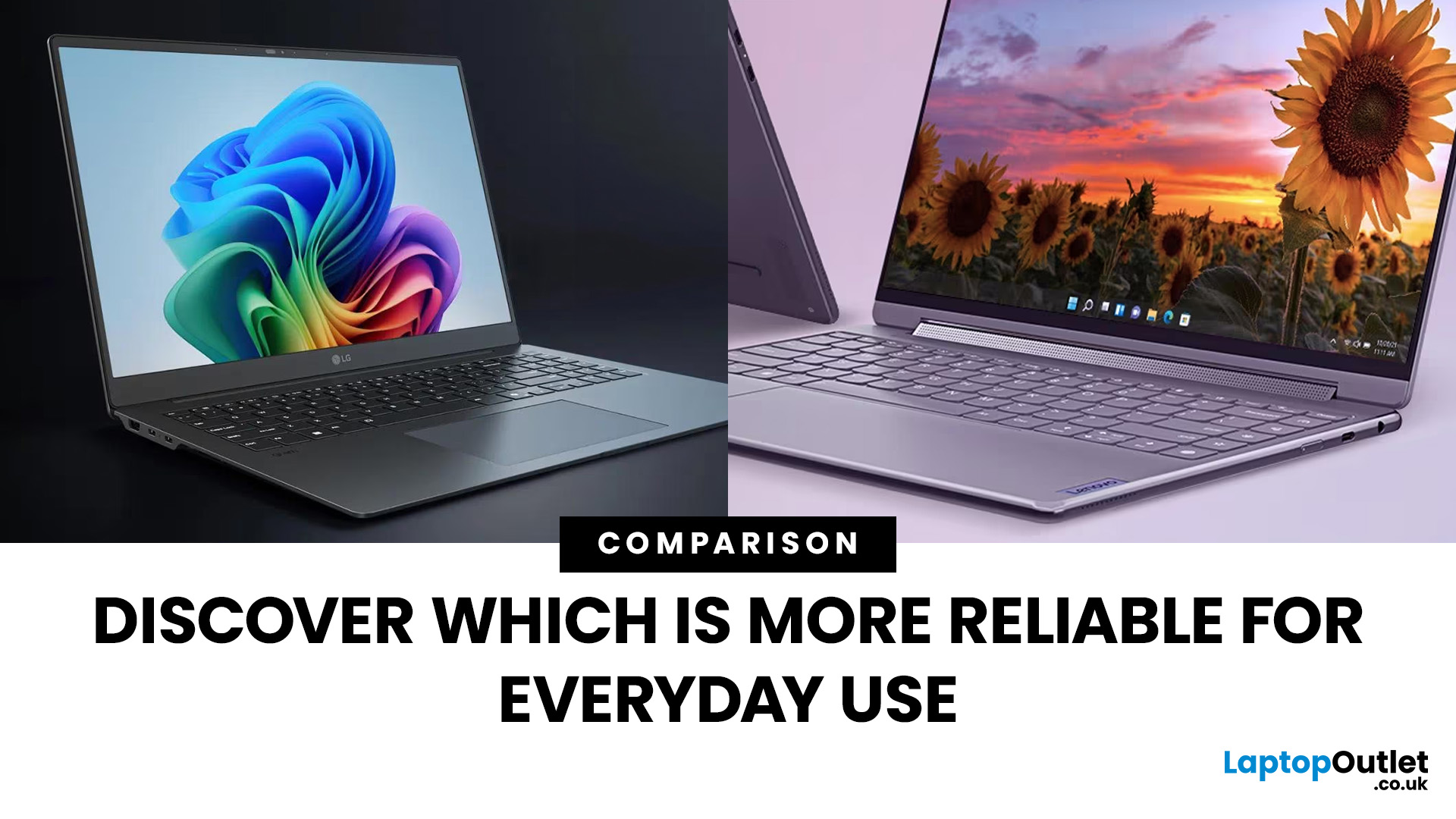
September 19, 2025
When it comes to everyday computing, both LG and Lenovo deliver laptops that check most of the boxes, but they cater to very different audiences. LG laptops, led by the Gram and Gram Pro lines, are known for being feather-light, ultra-portable, and battery champions. On the flip side, Lenovo laptops (ThinkPad, ThinkBook, Legion, and more) are business and performance powerhouses which are rugged, versatile, and trusted in workplaces worldwide.
So, which one should you choose in 2025? Let’s dive into this LG vs Lenovo laptops comparison and find out.
What’s the Difference Between LG and Lenovo Laptops?
- LG, especially through the Gram/Gram Pro lines, focuses on ultra-portability, thin builds, light weight, and modern features like long battery life, OLED options, and new AI-assist tools.
- Lenovo offers a wider lineup: from ultraportables (ThinkPad X / T series), to business workhorses (ThinkBook, ThinkPad business), to gaming/performance lines. They tend to emphasize durability (MIL-STD
